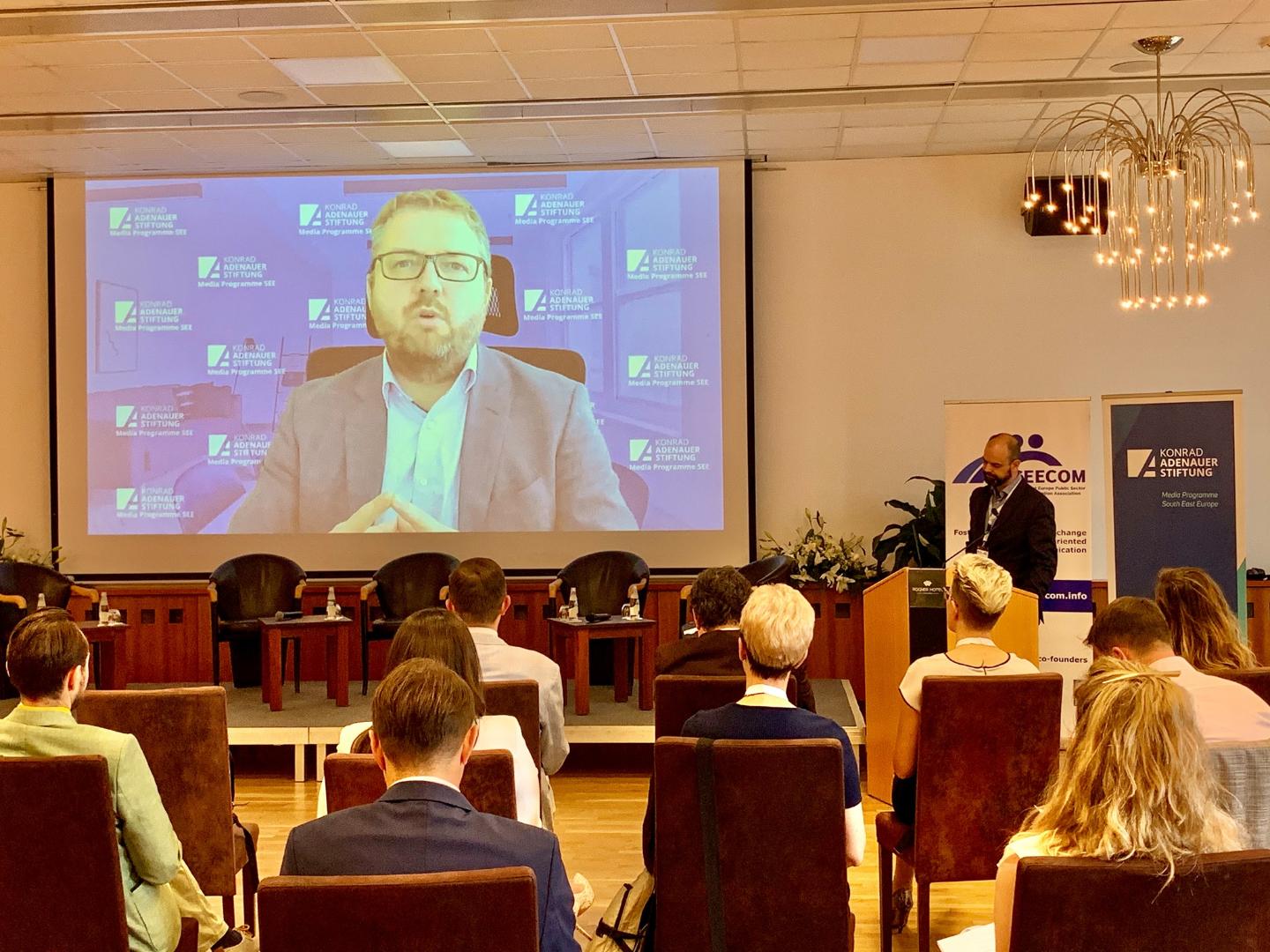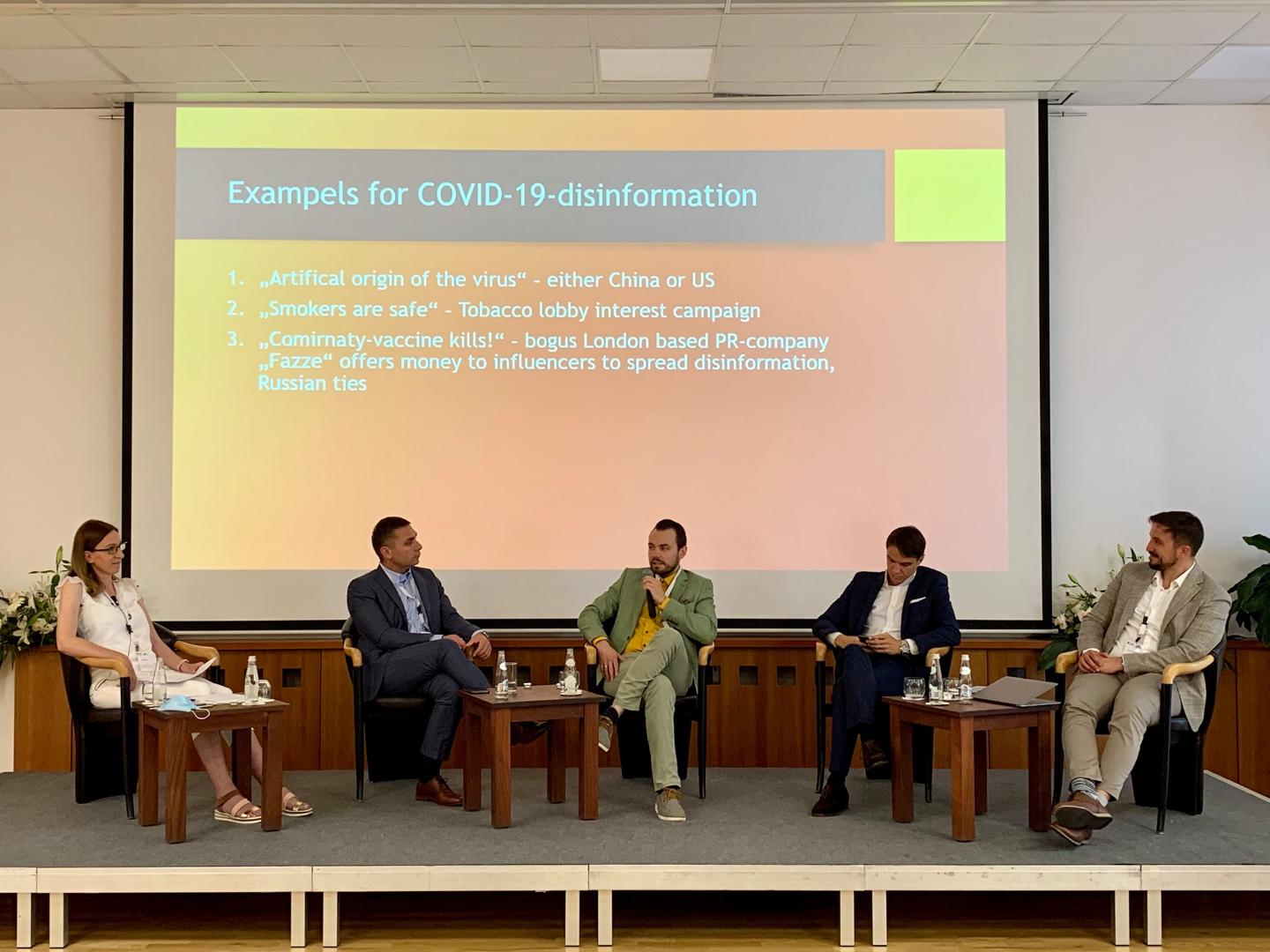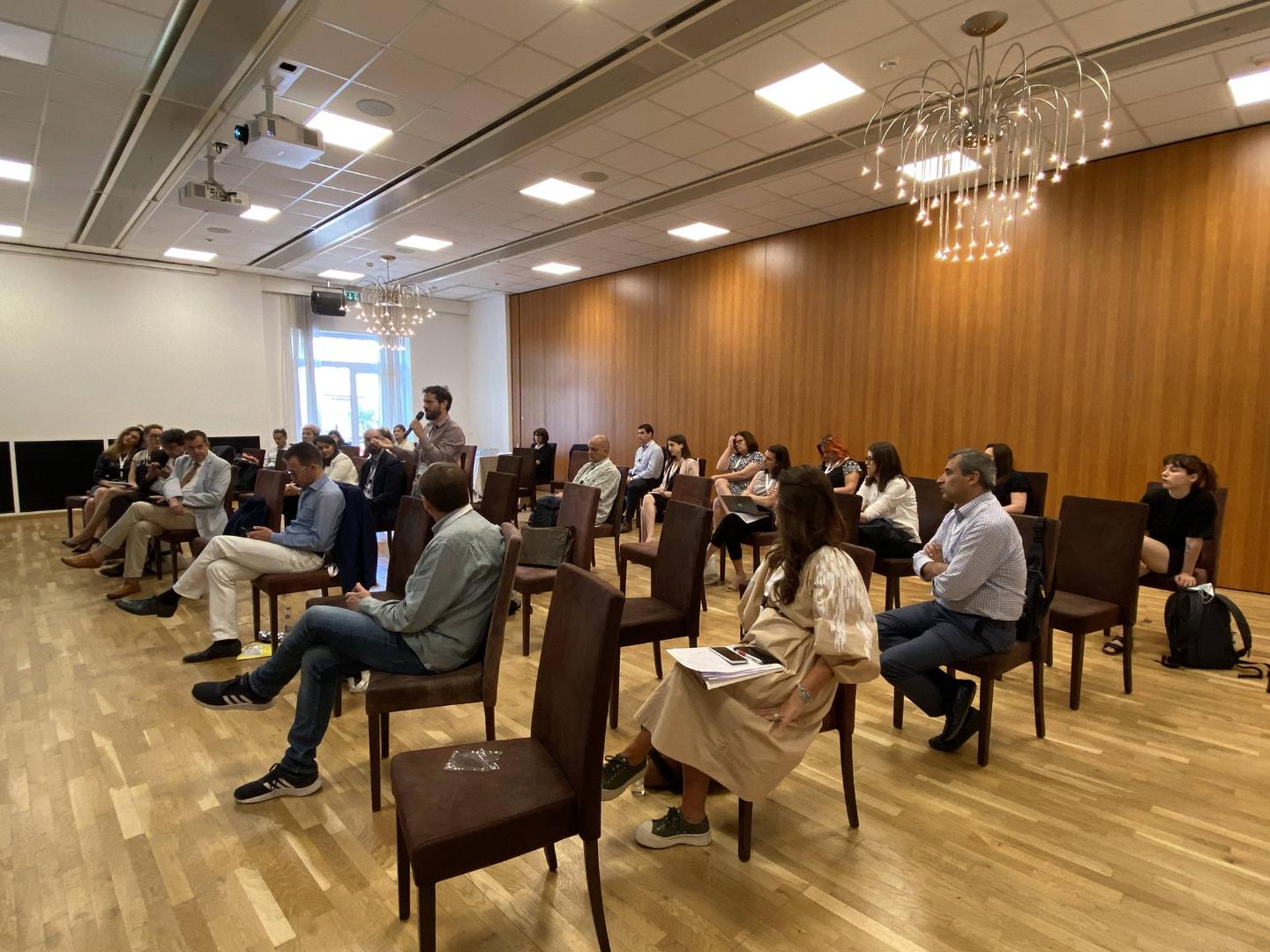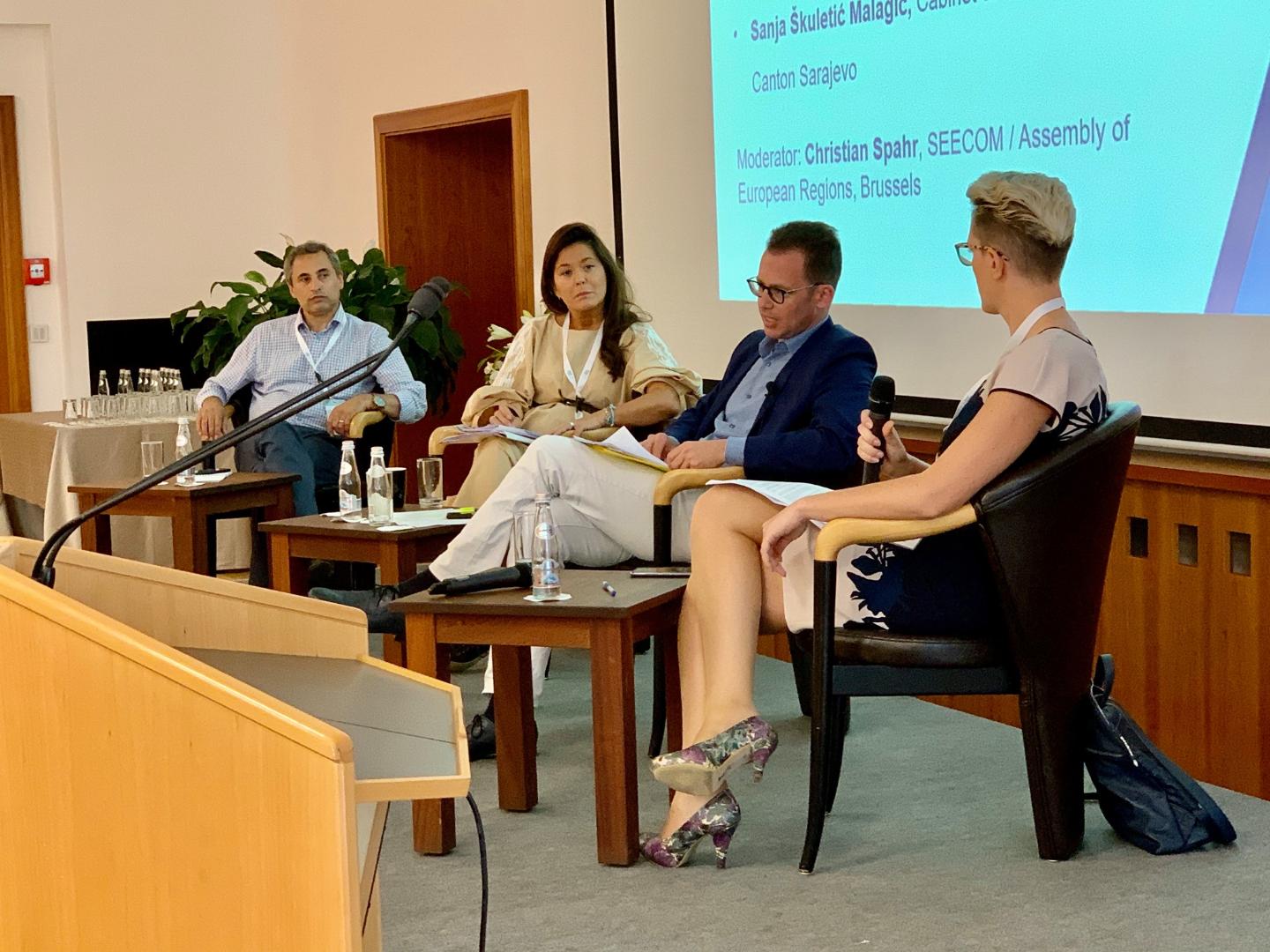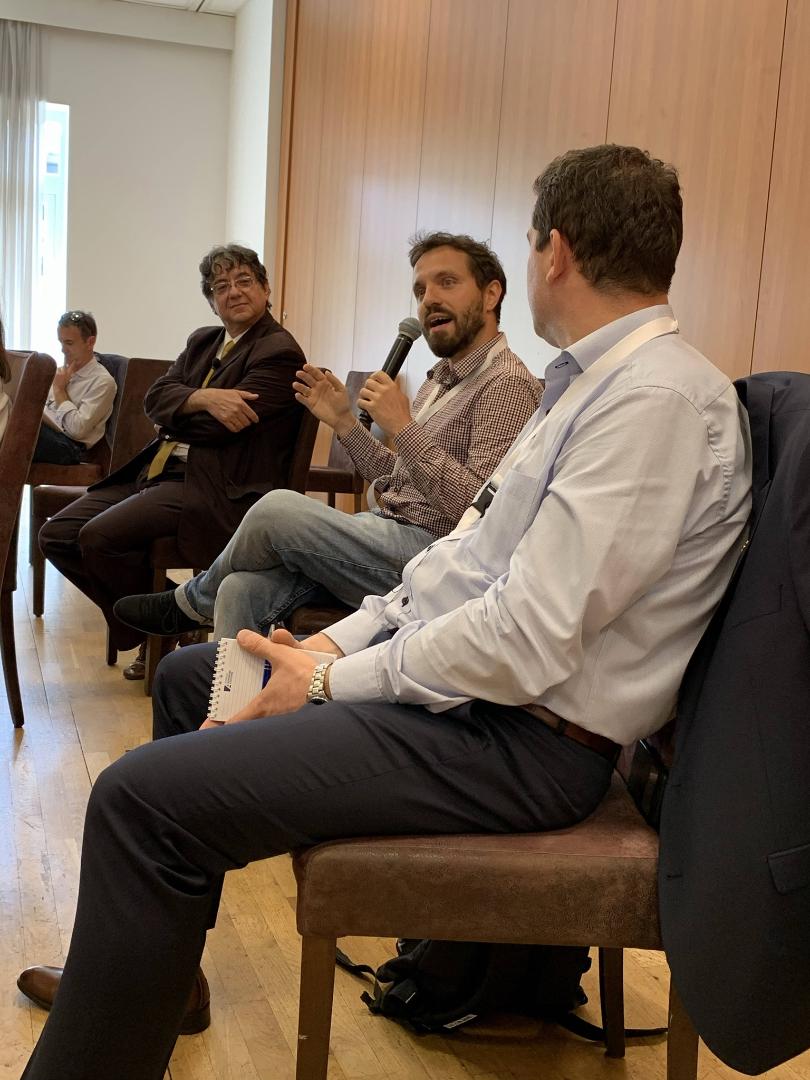Dealing with disinformation, building resilience against anti-European narratives and an active public dialogue were also on the agenda. Government spokesmen, communications experts and journalists from all over South East Europe attended the conference. The organisers were the KAS Media Programme South East Europe and the Communication Association for Government Spokespersons SEECOM (South East Europe Public Sector Communication Association).
Hendrik Sittig, Head of the KAS Media Programme South East Europe, and Ognian Zlatev, SEECOM President and Head of the European Commission Representation in Croatia, opened the conference. Vuk Vujnović, SEECOM Secretary General took over the moderation. "The spread of disinformation and fake news can considerably weaken the trust in democratic institutions, in authorities, governments, the European Union and also in traditional quality media," said Hendrik Sittig. " Targeted measures are needed to strengthen resilience against such attacks, to rebuild the trust, but also, for example to strengthen media literacy among young people and adults." Ognian Zlatev emphasized in his opening speech that the negative consequences of the corona pandemic and its considerable Influence on the media sphere should not be underestimated.
Olivér Várhelyi, EU Commissioner for Neighborhood and Enlargement, appealed in his video-keynote address to the need for reforms in the Western Balkans region. Such reforms would be made possible mainly through the EU integration process.
In the first panel, Damir Jugo (Dean of Edward Bernays University College), Petar Markovic (EU Citizens’ Rights Training Coordinator at the European Citizen Action Service), Christopher Nehring (Associate Lecturer in Media, Intelligence and Disinformation, Sofia University) and Adriatik Kelmendi (Director at Klan Kosova TV) debated on strategies to effectively combat disinformation and anti-European narratives. The discussion was moderated by Dinka Živalj, Head of Communication/Spokesperson to EU Office of Kosovo. The panelists agreed that the strategies to tackle targeted false news in the context of a global crisis should be based on improving general education, media literacy and citizen education. Education is the key to building social resilience and ultimately fighting disinformation.
In the second panel, the speakers focused on forms of citizen participation in the democratic process. Christian Spahr, SEECOM Board Member; Secretary General, Assembly of European Regions moderated the panel. The speakers Arben Cejku (Executive Director at Albanian Center for Good Governance), Suzana N. Vasiljević (Media Adviser to the President of the Republic of Serbia) and Sanja Škuletić Malagić (Chief of Cabinet of the Prime Minister of the Canton Sarajevo) saw in the crisis also an opportunity to improve civil dialogue. The year 2021 gave governments a new perspective on the issue of citizen participation. Important political decisions are not possible without the citizens’ participation. One-sided communication is hardly imaginable anymore and also not suitable in view of the new digital era and the numerous new communication channels that digitisation brings with it.
During the so-called Un-Conference, which was moderated by Sandra Križanec (News anchor and editor, N1 Zagreb) and Nebojša Regoje (Head of Public Relations at the Ministry of Foreign Affairs of Bosnia and Herzegovina), the main point was to improve cooperation between spokespersons and journalists - especially in times of crisis. The participants had the opportunity to exchange experiences and best practices. Despite numerous positive examples of successful crisis management strategies, it also became clear that communication between journalists and spokespersons must continue to be further developed and improved.
The importance of young people in terms of future politics was a key subject throughout the conference. This was also addressed in the closing speech by Clara Föller, President of the Young European Federalists Organisation. She focused on different challenges that young people are facing, especially in times of crisis, such as youth unemployment and a lack of prospects, but also on the fact that it is necessary for politicians, not only to listen to young people, but also to give them a voice and, above all, the opportunity to act on their ideas and suggestions.



